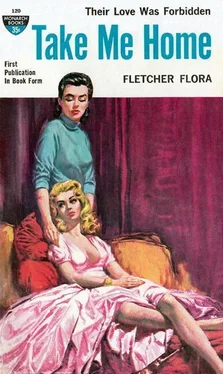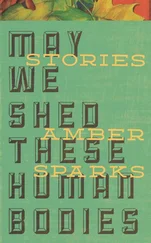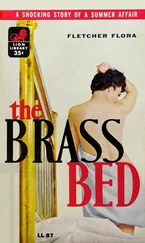Флетчер Флора - Take Me Home
Здесь есть возможность читать онлайн «Флетчер Флора - Take Me Home» весь текст электронной книги совершенно бесплатно (целиком полную версию без сокращений). В некоторых случаях можно слушать аудио, скачать через торрент в формате fb2 и присутствует краткое содержание. Город: New York, Год выпуска: 1959, Издательство: Monarch, Жанр: Эротические любовные романы, на английском языке. Описание произведения, (предисловие) а так же отзывы посетителей доступны на портале библиотеки ЛибКат.
- Название:Take Me Home
- Автор:
- Издательство:Monarch
- Жанр:
- Год:1959
- Город:New York
- ISBN:нет данных
- Рейтинг книги:4 / 5. Голосов: 1
-
Избранное:Добавить в избранное
- Отзывы:
-
Ваша оценка:
- 80
- 1
- 2
- 3
- 4
- 5
Take Me Home: краткое содержание, описание и аннотация
Предлагаем к чтению аннотацию, описание, краткое содержание или предисловие (зависит от того, что написал сам автор книги «Take Me Home»). Если вы не нашли необходимую информацию о книге — напишите в комментариях, мы постараемся отыскать её.
Take Me Home — читать онлайн бесплатно полную книгу (весь текст) целиком
Ниже представлен текст книги, разбитый по страницам. Система сохранения места последней прочитанной страницы, позволяет с удобством читать онлайн бесплатно книгу «Take Me Home», без необходимости каждый раз заново искать на чём Вы остановились. Поставьте закладку, и сможете в любой момент перейти на страницу, на которой закончили чтение.
Интервал:
Закладка:
He went out and downstairs and began to walk in the direction of the building in which he worked. It was still dark, and far earlier than he ordinarily left in the morning, and he had plenty of time to walk the entire distance, over three miles, rather than having to take the bus as usual. He was glad of this, for he needed the physical action, and he was grateful for the cold air that stung his face and carried a threat of snow. He could not remember having been angrier in his life than he was now, and his anger was not because of the little pain he had suffered, the scratches on his face, but because of the shame ht had felt and was still feeling, almost a sense of degeneracy. Waking to find her sleeping beside him, her slender body warm and lovely and inciting in its thin gown, he had not touched her until she asked for it, and the violence of her repulsion had made him feel irrationally like a rapist at least, although he was not.
Well, he had told her the truth. She was psycho. Queer. Trouble. He couldn’t imagine what had possessed him to expose himself to her in the way he had, except that he was a little crazy himself, and if she did not leave voluntarily while he was gone, then he would send her away tonight when he returned, and that would be the end of it. His anger had made him physically ill, on the verge of vomiting, but walking and cold air began to clear his head and reduce the angry fever in his flesh, and when he reached the building in which he worked, he was feeling much better.
As the morning passed, Henry’s anger diminished, and he began to wonder if, after all, he had been fair. Reviewing the sordid episode in the clearer climate of his lessened anger, he thought he could understand Ivy’s intent, which had been good, and its failure, which was understandable. Last night, after the impromptu party, they had achieved in their conversation a warmth and compatibility greater than any they had achieved before, and they had even mentioned for a moment the chance of love. Waking early, at it must certainly have happened, she had thought of him and wanted him, or had at least wanted to try him, and so she had come in to find him sleeping and had lain down beside him on the bed. She had acted rashly, that was true, but there was in the action, just the same, a kind of pathetic courage.
Once he had considered it dispassionately, this seemed so obviously the truth that he was tempted, when it was time for lunch, to take a taxi home and talk with Ivy again. But perhaps she was already gone, and perhaps it would be better, regardless of the truth, to leave matters as they were. They had established a precarious relationship, and it would be foolishness, maybe dangerous foolishness, to try to save it under the illusion that it might be the saving of her. People like her did not change. The basic fault they shared must be organic and irreparable. The only sensible thing to do with one of them, he thought, was to turn and walk away.
He lunched alone in a cafeteria in the basement of the building. Afterward, upstairs, he could not dismiss a feeling of uneasiness and guilt that had replaced his anger. If he did not regret his position, he at least regretted the brutality with which he had assumed it. For the first time since knowing Ivy, he felt a need to make some kind of personal contact with her past, to meet and talk with someone who had known her before him. It was then, in the development of this need, that he began to think of Lila Galvin, and sometime during the afternoon he made up his mind definitely that he would see her and talk with her that evening if possible.
He left the offices at five and stopped in a telephone booth in the lobby below. Checking the directory, he found Lila’s name and address listed, and he considered calling to see if she was at home, but he decided against it. If he were to speak with her on the telephone, she might refuse to see him, which would make his calling on her all the more difficult. If he were simply to appear at her door without an invitation, he would at least not have the disadvantage of an expressed denial of one.
On the street outside, he caught a cab and was driven to the address he gave. The apartment house was impressive enough to exert a kind of preliminary intimidation over most trespassers, but Henry was in no humor to be intimidated, and he paid off the cab and entered the lobby. It was then that he remembered that he didn’t know the number of Lila Galvin’s apartment, and there was no doorman, no directory, no one in the lobby to answer questions. He supposed that he could check the floors until he came to the door with the right name on it, provided there was a name on it at all, but this did not seem to be a very sensible solution, and he was trying to think of another when a thin, dehydrated man came in from the street behind a Pomeranian on a leash. The man gave the impression of being dragged by the dog.
“I beg your pardon,” Henry said. “I have an appointment with a Miss Lila Galvin in this building, but I’m afraid I’ve forgotten the number of her apartment.”
The Pom did not stop, and neither, consequently, did the man. Passing, he spoke over his shoulder.
“Five-o-three. My floor. If you’re going up, come along.”
Henry followed the dog and the man into the self-service elevator and rode up five floors. As soon as the elevator doors were open, the Pom departed, turning right.
“You’re the other way,” the man said, again over his shoulder. “Just look for the number.”
Henry did and found it. Pressing a pearl button beside the door, he listened to a bell. He was about to press the button a second time when the door was opened without any prelude of sound, and he found himself staring at a young woman whom he took to be Lila Galvin, and who was, whoever else she was, one of the loveliest women he had ever seen. Her hair was a shimmering black cloud, gathering and holding the light, parted cleanly and drawn back sleekly into a knot on the back of her neck. The severe perfection of her face was relieved by a sensual mouth, and her body, in a black wool dress of beautiful simplicity, possessed the lean seductiveness of a high fashion model. Which was, he recalled, what she was.
“Yes?” she said. “What is it?”
“I’m looking for Miss Lila Galvin,” he said, certain that he was speaking to her.
She acknowledged her identity and continued to watch him with cool serenity tinged by a faint amusement implicit in slightly arched brows. Her loveliness and serenity and implicit amusement had altogether the effect of making him sound truculent.
“I’m Henry Harper,” he said, and waited.
“Oh?” Her brows arched, if possible, a little higher. “Is that supposed to mean something? Should I know you?”
“Probably not. There is someone else, however, whom we know in common. Ivy Galvin, your cousin.”
“I see.” Her brows descended, and she no longer looked amused, but neither did she look angry or to any degree distressed. “You’re the man she told me about when she returned for her things. She’s been staying with you.”
“That’s right. I’d like to talk with you.”
“No more than I would like to talk with you. Please come in.”
He walked past her into the living room that had a clean, modern look. The furniture, low and heavy but achieving in its simplicity an effect of lightness, was covered with a tweedy material that looked expensive. On the wall that Henry faced there was a good copy of a Van Gogh. Against the wall near a door to another room, there was a bleached console phonograph. It must be the one, he thought, to which Ivy had listened the night she meant to die. If the whole story was not, as he suspected it might be, a lie at the worst or a delusion at best.
“I just got home a few minutes ago,” Lila Galvin said. “I was about to fix myself a cocktail. Will you join me?”
Читать дальшеИнтервал:
Закладка:
Похожие книги на «Take Me Home»
Представляем Вашему вниманию похожие книги на «Take Me Home» списком для выбора. Мы отобрали схожую по названию и смыслу литературу в надежде предоставить читателям больше вариантов отыскать новые, интересные, ещё непрочитанные произведения.
Обсуждение, отзывы о книге «Take Me Home» и просто собственные мнения читателей. Оставьте ваши комментарии, напишите, что Вы думаете о произведении, его смысле или главных героях. Укажите что конкретно понравилось, а что нет, и почему Вы так считаете.












